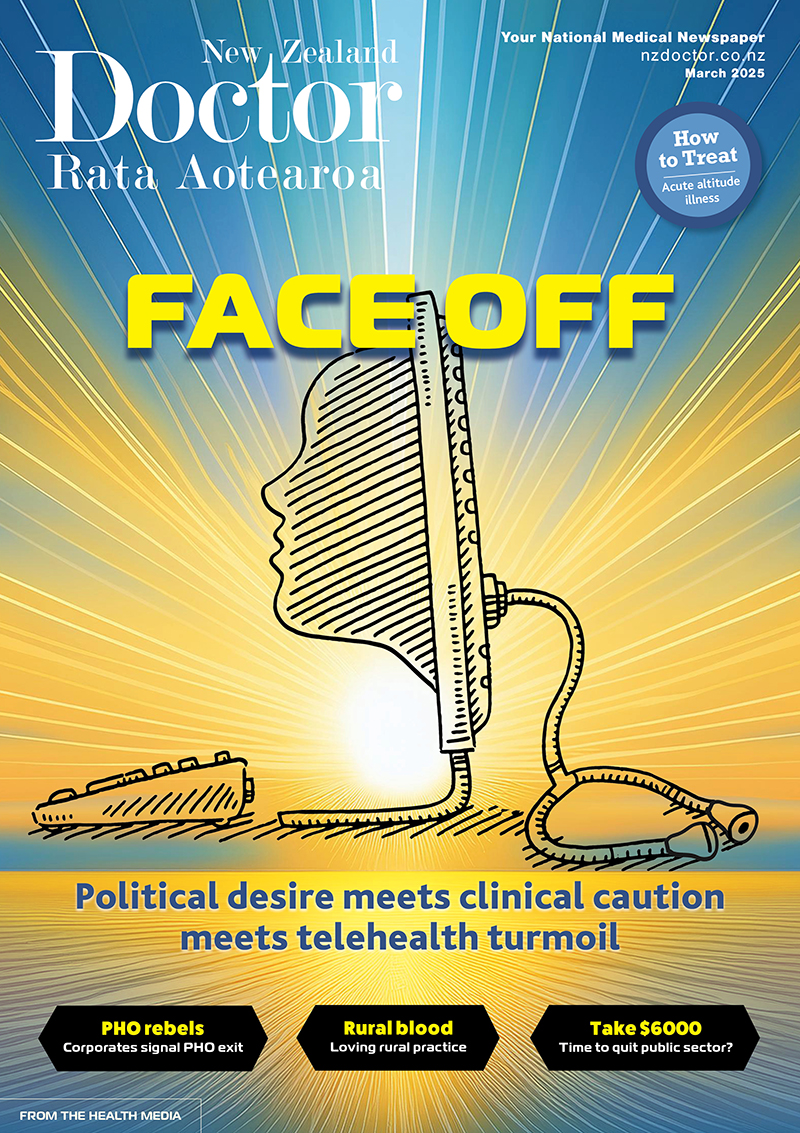Many people travel to high-altitude destinations, meaning clinicians are often faced with questions about how to prevent and treat altitude illness. Update your knowledge with this New Zealand Society of Travel Medicine summary of updated evidence-based guidelines with comments by senior lecturer Jenny Visser – it outlines the best prophylactic regimens, diagnostic approaches and treatment protocols for acute altitude illness
RCPA advises that all children are vaccinated in line with immunisation schedules, including the influenza vaccine
RCPA advises that all children are vaccinated in line with immunisation schedules, including the influenza vaccine

The Royal College of Pathologists of Australasia (RCPA) strongly recommends that individuals continue to visit their GP to vaccinate children in accordance with the National Immunisation Program (NIP) Schedule in Australia and the National Immunisation Schedule in New Zealand.
Children are at higher risk of serious complications from influenza and it is strongly recommended that children from six months are immunised against influenza every year. Dr Brendan McMullan is a Paediatric Infectious Diseases Specialist and Microbiologist, working at Sydney Children's Hospital. He explains that immunisation is an effective way to protect children against harmful, contagious diseases.
“During the COVID-19 pandemic, we have seen a decline in the number of people attending important GP appointments. While in some states such as NSW we have seen an increase in vaccination rates over the last few years, there is concern that an avoidance of the GP may mean that children are not receiving the appropriate vaccinations that they would normally.
“My message is that children should be vaccinated as usual; don’t be afraid to visit your GP due to COVID-19. This is extremely important for individuals and for the community as a whole and highlights the importance of pathology in the health care of everyone. Of course, during this pandemic we also need to keep up sensible precautions, and anyone with symptoms should self-isolate and be tested to prevent the spread of COVID-19,” said Dr McMullan.
Maintaining high levels of vaccination coverage minimises the risk of vaccine-preventable diseases developing in the community and protects the health of individuals, both now and into the future. The NIP Schedule and the New Zealand Immunisation Schedule both provide a series of immunisations given at specific times throughout life, from birth to adulthood. All vaccines listed in the schedules are at no cost to the patient.
“COVID-19 has clearly illustrated the difficult reality that we face as a community when there is a disease capable of causing severe illness with no available vaccine. Fortunately, in Australia and New Zealand, we have a very good vaccination schedule that provides protection against a number of diseases which can cause serious illness, or even death, in childhood or later in life.
“Without vaccination, individuals are putting themselves and the community at risk of catching a serious disease. Vaccinations protect our children against a wide range of diseases, including, measles, mumps and rubella (MMR), diphtheria and pneumococcal disease, just to name a few, therefore it is essential to ensure they are adequately protected.”
In Australia, vaccines must pass strict safety testing before the Therapeutic Goods Association (TGA) will register them for use[1]. Before a vaccine is approved for supply in New Zealand the manufacturer must demonstrate its quality, that it works well and that it is safe to the satisfaction of Medsafe, a division of the Ministry of Health[2]. Once approved, these vaccines are monitored continuously for safety.
“Vaccines are extremely well studied both prior to release and also during use. Australia and New Zealand have a national system of vaccine quality control in place, as well as a reporting system for any adverse events or problems. If there is any suggestion that there is an issue with a batch of vaccines, or with a particular vaccine, there is a very robust response to ensure that the supply chain remains safe. Vaccines, and further advice on the vaccines that your child requires, are available from general practitioners.
“Adhering to the vaccine NIP Schedule in Australia and the New Zealand Immunisation Schedule is the best step we can take to ensure that these countries maintain good vaccination rates. This action protects not only the individual, but also the wider population through herd immunity. Overall, we have very good vaccination rates in these countries, however that is something that we need to work hard to maintain as a community and really look at opportunities to improve all the time,” said Dr McMullan.
For more information and to check the list of vaccinations available to children, please visit https://www.health.gov.au/health-topics/immunisation/immunisation-throughout-life/national-immunisation-program-schedu
The New Zealand National Immunisation Schedule was updated on 1 July 2020. Please visit: https://www.health.govt.nz/our-work/preventative-health-wellness/immunisation/new-zealand-immunisation-schedule/2020-immunisation-schedule-change.
For further information on the RCPA, please visit www.rcpa.edu.au or see updates on Facebook - @PathologyRCPA, Twitter - @RCPAPresident, @PathologyRCPA, or Instagram - @the_rcpa #RCPA #pathology #MedicineIsPathology.




